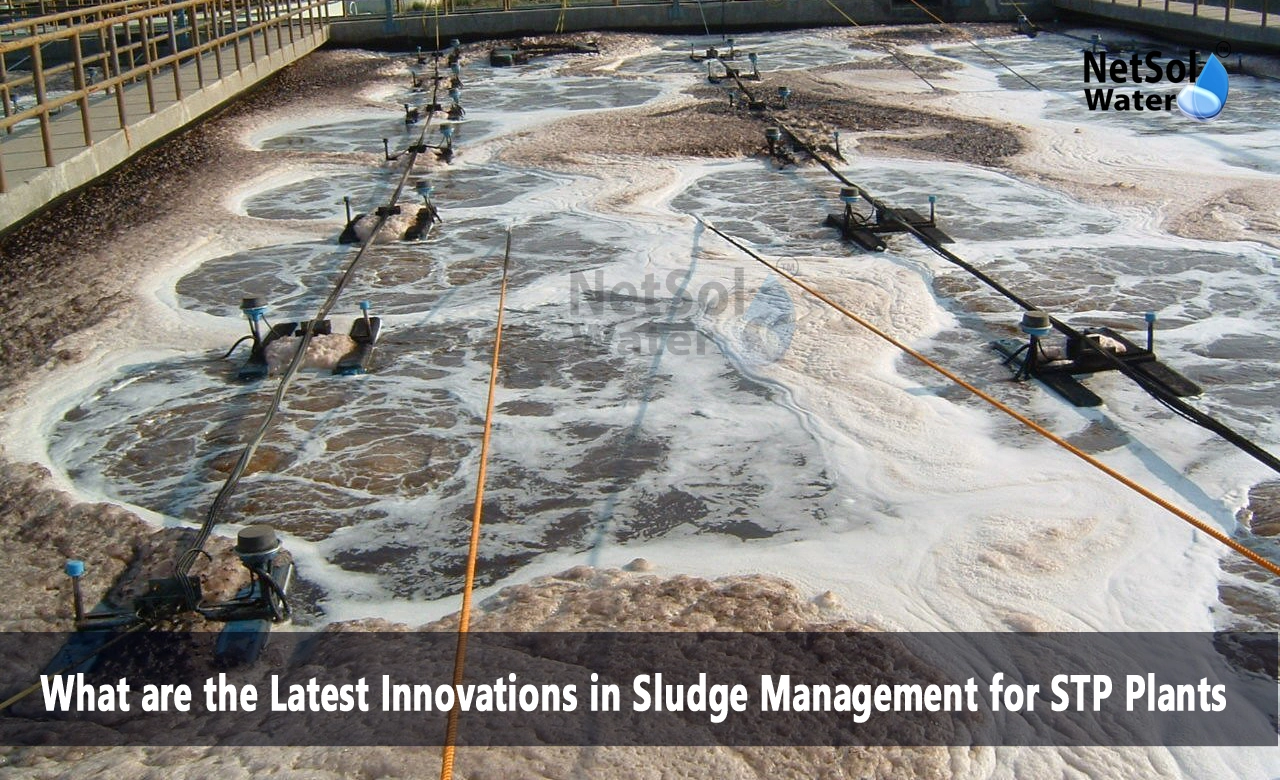What are the Latest Innovations in Sludge Management for STP Plants?
Sewage treatment plants face increasing pressure to handle sludge effectively and sustainably as populations rise and laws tighten. Recent developments improve sludge management strategies. We'll investigate these groundbreaking developments redefining sewage sludge handling.
Advanced Dewatering Technologies
New technologies change sludge dewatering making disposal easier.
Electrokinetic Dewatering
This approach separates water from sludge using an electric field. It achieves higher dry solids content than standard procedures. A low voltage current transfers water molecules leaving drier sludge cake.
Benefits:
· Yields drier solids
· Consumes less energy
· Reduces chemical use
Drawbacks:
- Demands higher upfront costs
- May require pretreatment
Vacuum-assisted Dewatering
These devices combine pressure and vacuum to remove water. They boost efficiency especially for thick sludges.
Advantages:
· Produces drier solids
· Works with varied sludges
· Adapts to current equipment
Challenges:
· Consumes more energy
· Needs careful tuning
Thermal Hydrolysis
Thermal hydrolysis breaks down complex organics in sludge using heat and pressure. It prepares sludge for anaerobic digestion.
Process Overview
Operators heat sludge to 165°C under pressure for 30 minutes. This ruptures cells and splits compounds. Rapid depressurization further destroys sludge structure.
Benefits:
· Increases biogas production
· Improves sludge dewatering
· Reduces sludge volume
Drawbacks:
· Requires lots of energy
· Needs huge investment
Advanced Anaerobic Digestion
New techniques boost anaerobic digestion efficiency.
Two-stage Anaerobic Digestion
This technique uses two reactors for various digesting phases. It enhances conditions for microorganisms enhancing efficiency and methane generation.
Advantages:
· Produces more biogas
· Stabilizes the process
· Kills more germs
Challenges:
· Increases operational complexity
· Costs more initially
Temperature-Phased Anaerobic Digestion
This approach includes high and moderate temperature stages. The hot stage speeds breakdown while the colder stage provides consistent biogas generation.
Benefits:
· Processes sludge faster
· Eliminates more pathogens
· Yields more biogas
Drawbacks:
· Needs more heating energy
· Requires careful temperature control
Supercritical Water Oxidation(SCWO)
This method eliminates organic materials in sludge totally leaving only water CO2 and minerals.
Process Overview
SCWO operates above water's critical point. Under these conditions water oxidizes organic molecules fast without deleterious emissions.
Advantages:
· Destroys impurities fully
· Produces no air pollutants
· Offers energy recovery potential
Challenges:
· Incurs expensive costs
· Faces corrosion difficulties
Nutrient Recovery
Plants now regard sludge as a resource for nutrient recovery.
Benefits:
· Recovers valuable nutrients
· Reduces plant phosphorus burden
· Prevents pipe scaling
Challenges:
· Requires pH control
· May need magnesium addition
Phosphorus Recovery from Incineration Ash
New techniques recover up to 90% phosphorus from burned sludge ash for fertilizer manufacture.
Advantages:
· Recovers phosphorus efficiently
· Produces clean phosphorus
· Works with existing plants
Drawbacks:
· Consumes much energy
· Requires extra chemicals
Biochar Production
Pyrolysis turns sludge into biochar a useful carbon-rich substance.
Process and Applications
Heating sludge without oxygen yields biochar used for soil improvement or carbon storage.
Benefits:
· Sequesters carbon
· Enhances soil quality
· Serves as water treatment aid
Challenges:
· Demands energyintensive procedure
· Raises contamination worries
Conclusion
Innovation generates quick improvements in sludge management. New technologies alter how facilities handle sewage sludge making processes more efficient and sustainable.Future facilities will likely integrate these technologies to increase performance and environmental effect. However no single method fits all instances. The optimum approach frequently includes numerous technologies adapted to each plant's needs.
Adopting new technologies involves obstacles like high prices training needs and regulatory impediments. Overcoming these challenges involves collaboration among researchers engineers policymakers and industry professionals.
To explore customised commercial RO plants, Industrial RO plants, ETP or STP solutions for your needs in your areas and nearby regions, contact Netsol Water at:
Phone: +91-965-060-8473, Email: enquiry@netsolwater.com



